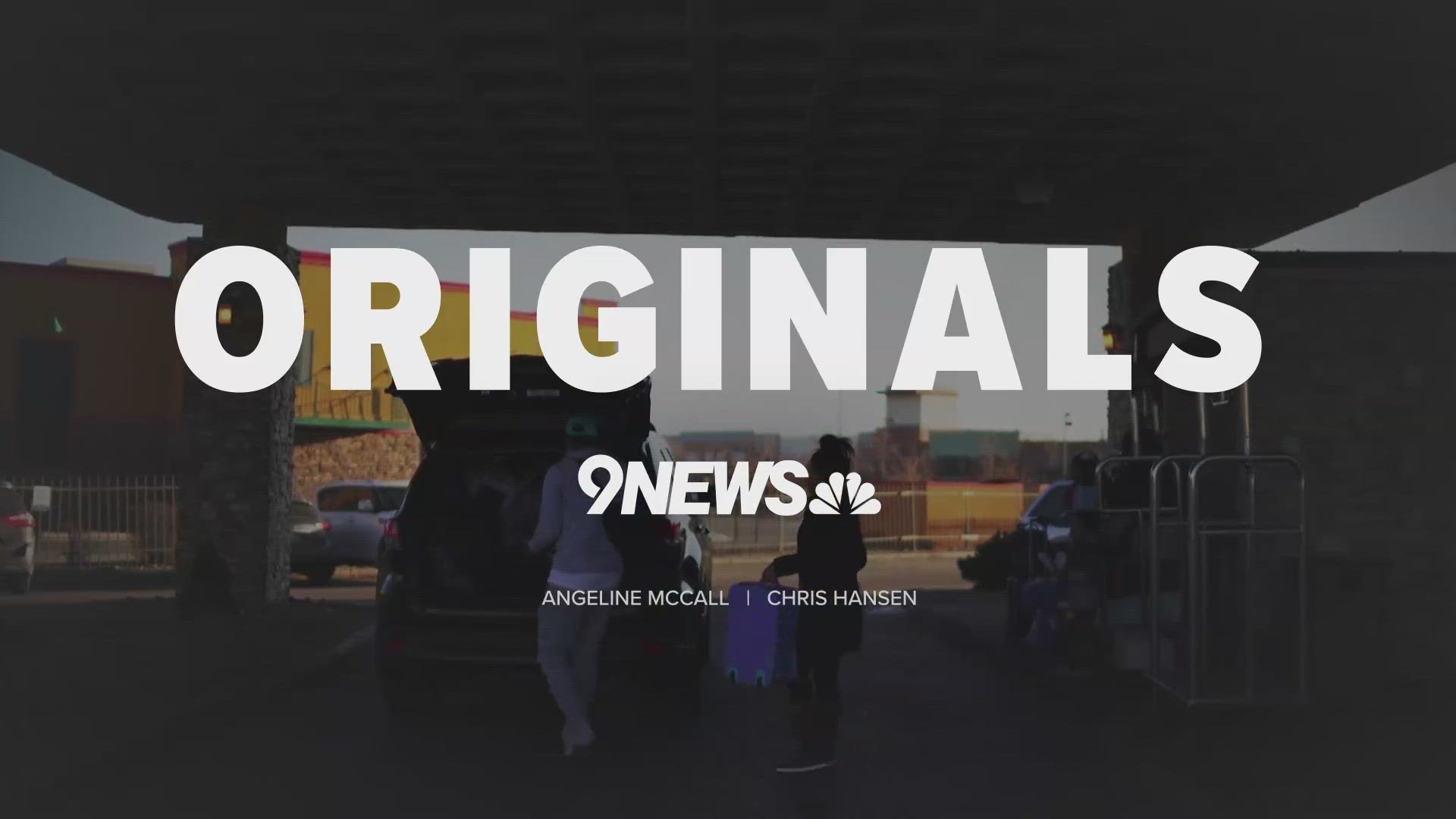Family finds first stable housing since arriving to US months ago
A migrant family from Venezuela moved out of temporary shelter to a place they can call their own as they work to secure permanent housing for their family.
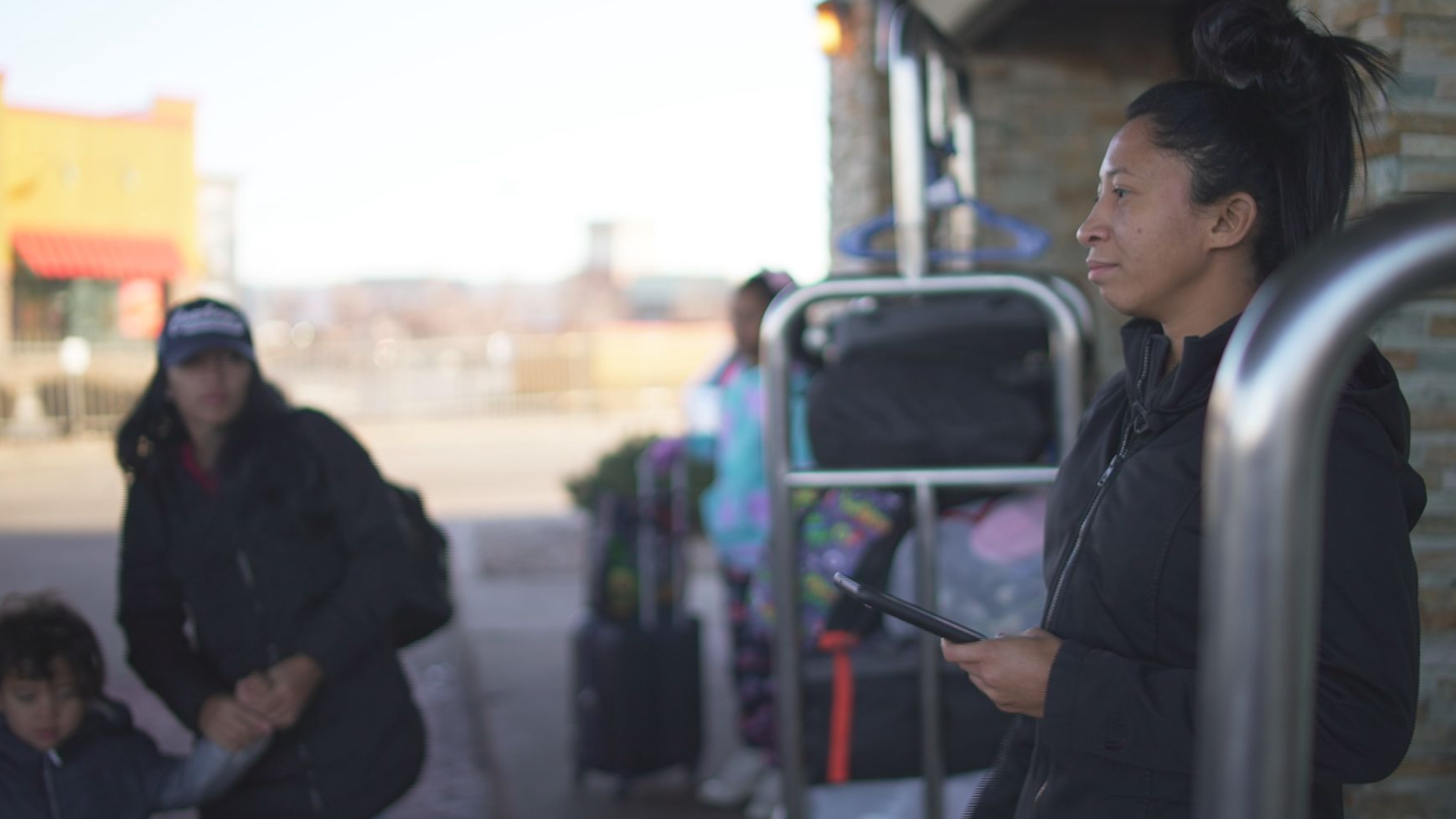
After months on the road, migrant families in Colorado are relying less on the shelter system, and finding their own housing solutions.
One such migrant family shared the moment they found a more stable housing option with 9NEWS.
"To arrive here, I’m excited because well, I was in the United States. I was doing well in the shelter, but I felt the need to find a place to stay," Maria said.
En Español: "Desde que llegué acá, estaba emocionada porque ya estaba acá en los Estados Unidos", dijo Maria. "Pero, estaba bien en el refugio, pero sentía la necesidad de encontrar un lugar donde vivir".
Since moving into a hotel-turned-shelter, Maria hoped to leave.
"For better safety of everyone, also the children. Because the shelter is not reliable because we are in a room," Maria said.
"Para mejor seguridad de todos, también de los niños", dijo Maria. "Porque el refugio no es seguro, porque estamos en un cuarto".
Chapter 1 It was never meant to be a home
"But in the hotel, I was thinking about a lot of things and I was thinking about how people were told to leave. We saw it, people getting kicked out. And I thought to myself, I cannot imagine them coming to the door and we would have to leave. Because where would we go? For that, I feel really grateful," Maria said.
"Pero en el hotel, ya estaban pasando muchas cosas, y ya están empezando a sacar gente, porque lo vimos. Y yo decía, no quiero imaginar que nos toquen la puerta y que tengamos que salir porque a donde vamos. Por eso, siento mucho agradecimiento", digo Maria
"Thanks to God, we are moving forward," Maria said.
"Gracias a Dios, conseguimos", dijo Maria.
For more than a month, Maria worried how she would find another place to stay outside of Denver's shelter system.

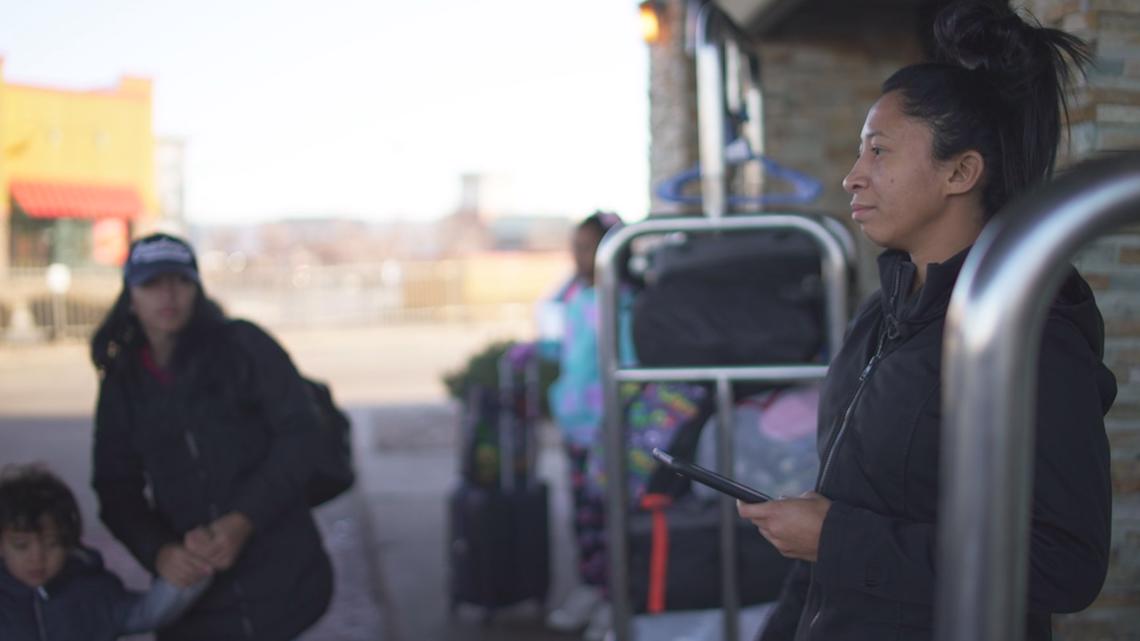
"I felt a little pressure because there are a lot of rules that we understand we have to comply by. But also, we need a little bit more freedom," Maria said.
"Es cierto. Ya me sentía con presión porque si, hay muchas reglas que entendemos que tenemos que cumplir. Pero también, necesitamos un poco más de libertad", dijo Maria.
Her anxiety now relieved after finding a house for her family to stay in.
"But we felt like it was hard, and we felt a little confused with some things because we do not know the system here in the United States. If there we were to be investigated or asked no, no we couldn’t imagine that we would obtain a place to live. We don’t have papers to rent a house, to be able to have a sum of money because we don’t have it. So, I didn’t expect [the house]," Maria said.
“Pero sentíamos que era duro y nos sentíamos un poco confundidos con algunas cosas porque no conocemos el sistema aquí en los Estados Unidos", dijo Maria. "Si allí nos investigaran o nos preguntaran no, no no podíamos imaginar que obtendría un lugar para vivir. No tenemos papeles para alquilar una casa, para poder tener una suma de dinero porque no la tenemos. Entonces, no esperaba [la casa]".
Chapter 1 Moving day for Maria's family
On moving day, Maria packed up her family, and so did her sister with her family.
"We have completed time. Our time is over," Maria said.
"Ya se nos cumplio el tiempo", dijo Maria.
"Yes, finally, the end. Thanks to God. We are waiting only for transportation but already we are ready," Maria said.
"Si, ya, el fin. Gracias a dios, ya. Estamos listos. Ya esperando solo para transportarnos pero ya todo esta listo", dijo Maria.

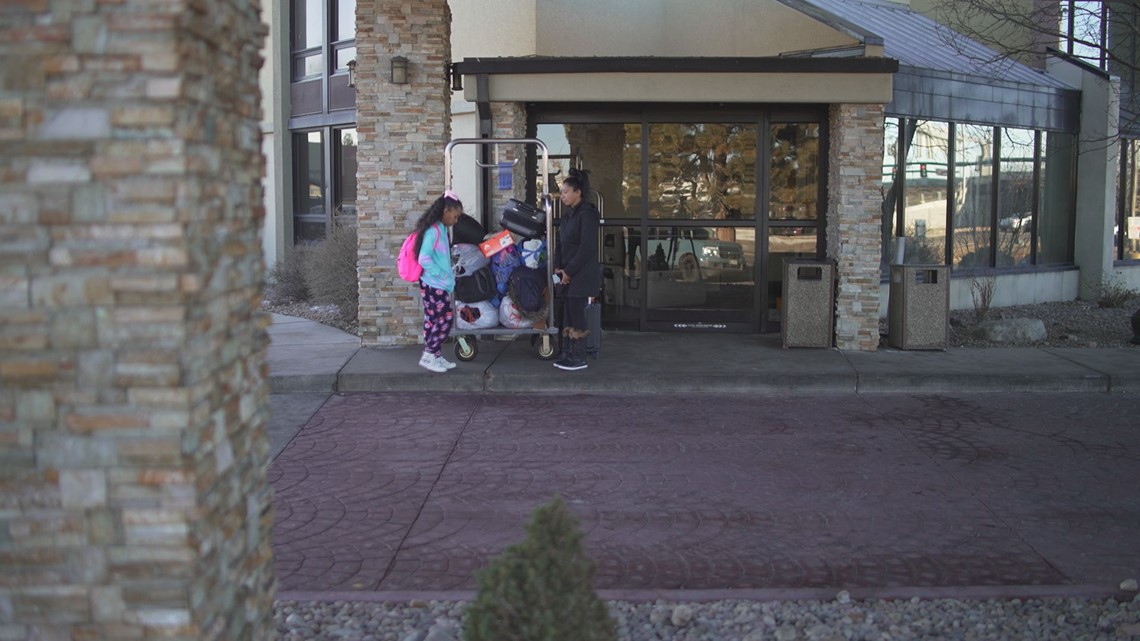
Everything they own can fit on two luggage carts. They pack their bags into the car.
"And it’s not very far, like 20 minutes or 30," Maria said.
"Y no es muy lejos, como 20 minutos o 30", dijo Maria.

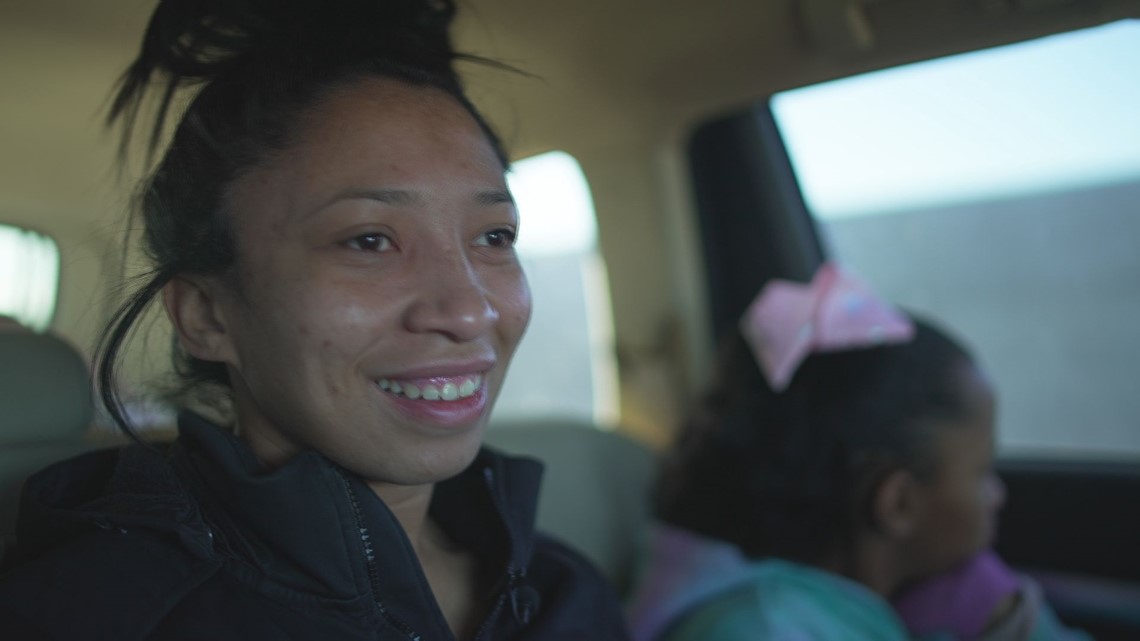
They're moving to a home that's vacant for now.
"It’s pretty. Do you like it?" Maria asked her daughter.
"Yes," said her daughter.
"Es bonito. Te gusta?" Maria le pregunto a su hija.
A developer will tear it down in a few months, but until then, it's theirs – a place to call home outside of the shelter.
"The place where we are going, we are like this, in the city and the center. There (in the hotel) we were really removed. It was hard for me to go out. I still don’t know (the city)," Maria said.
"El lugar a donde vamos es como, estamos en la cuidad y el centro. Acá estamos muy retirado y no conocía bien", dijo Maria.
They are moving out of being confined, and moving towards independence.
"We are almost there, still a little left. We have almost arrived, still a little to go. Twelve minutes, we will be there," Maria said.
"Casi llegamos, ya falta poquito. Doce minutos, esta mas allá", dijo Maria.
Chapter 2 Making their new house a home
As Maria unloaded her family's bags from the Uber, she thanked the driver in English, and gave him and thumbs up and a smile.
Maria's family and her sisters received help from nonprofit leaders.

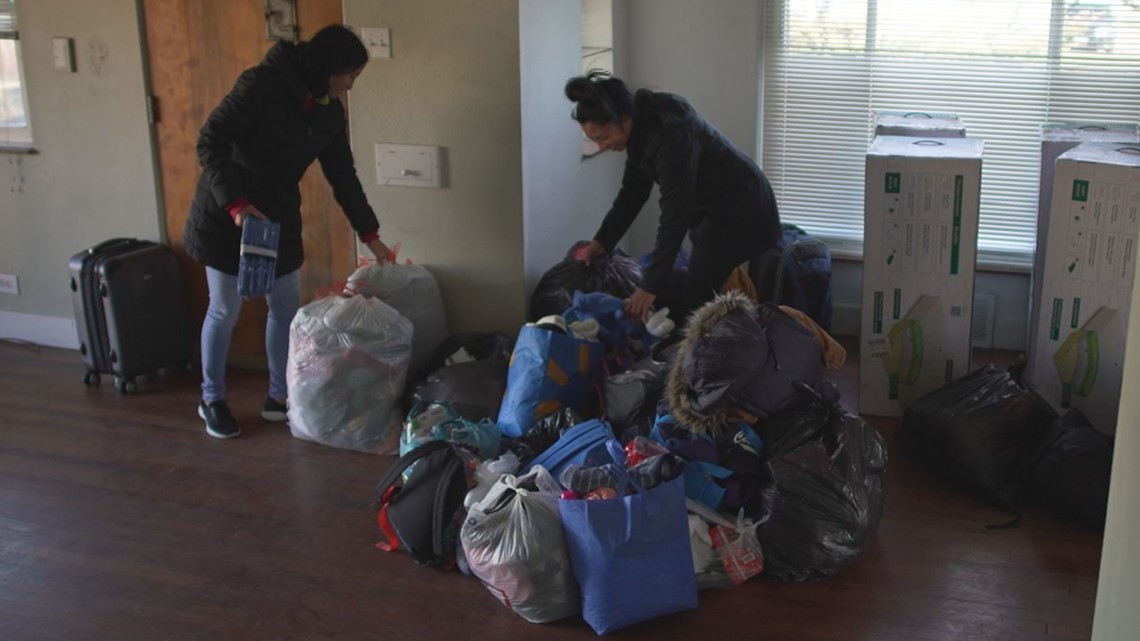
"And you guys have meat?" Maria's friend asked.
"Thank you," said Marielena, Maria's daughter.
"Y que tienen carne"? Marielena Suarez preguntó a Maria. "Gracias", dijo Maria.
For the first time, Maria's family will be able to make their own food – in a kitchen they call their own.
"Organizing. Everything’s disorganized," Maria said.
"Organizar. Todo esta en desorden", dijo Maria.
She didn't have a plan or the money for a house, but has been surprised by the support she's received from a community and one person's generosity.

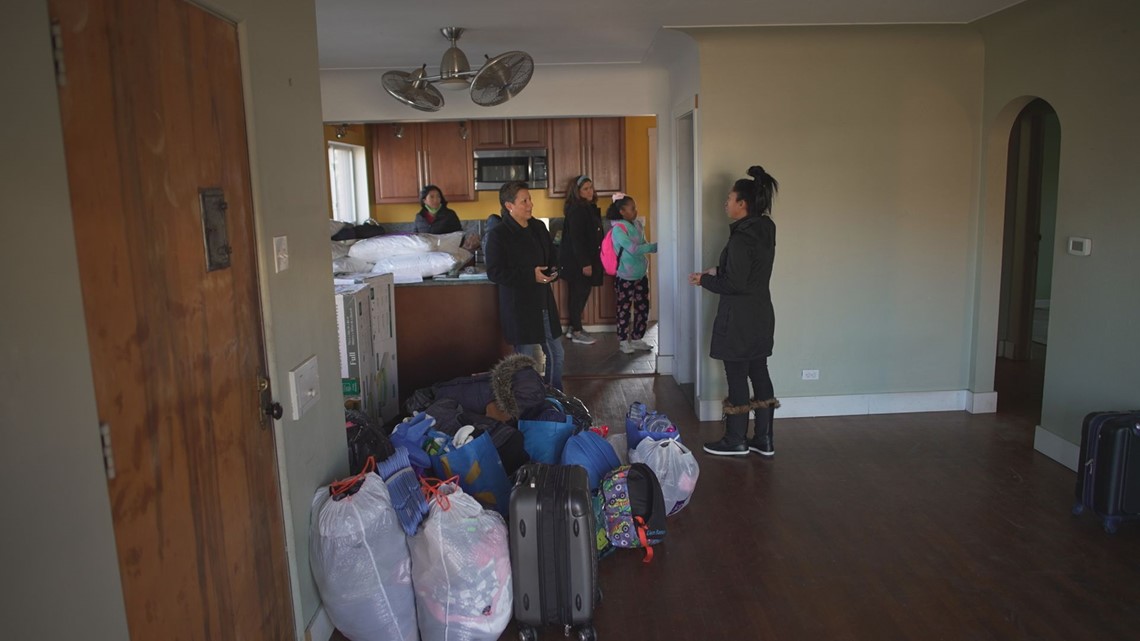
"We had this idea that, I’m going to tell you, we heard that there are people, the 'gringos,' as they called them, 'The Americans are very racist,' they would tell us, 'They are very closed off.' We heard a lot of those things, and we lived in fear," Maria said. "But there are good people. Not everyone in the world, no they are not the same. But always there are people with good hearts and God touches them (inspires them)."
"Nosotros teníamos esta idea de, se los voy a decir, nos decían, 'los gringos,' como ellos los llamaban, 'los Americanos son muy racistas, ellos son muy cerrados' Si nos decían mucho esas cosas y nosotros vivíamos con el temor", dijo Maria. "Pero si hay personas buenas, no todo el mundo se puede generalizar, no todos en el mundo son iguales, siempre hay personas con buen corazon y siempre dios toca esa personas".
Chapter 2 A sense of security, less worry
Being in a stable home has lifted one of Maria's biggest worries.
"I felt a lot of pressure. I said, 'What am I going to do?' One day, I cried at night, I said, 'How am I going to settle, sort out my children, settle my dog?' I'm going to go to the street under a bridge and a tent. I need peace because I had many things on my mind. I felt like a lot of pressure," Maria said.
"Me sentía con mucha presión. Yo decía, 'Que voy a hacer?' Un día llorando en la noche, dije 'Voy a agarrar a mis hijos, agarrar a mi perrita?' Voy a ir a la calle, si debajo de un puente y una carpa. Yo necesitaba paz porque tenía muchas cosas en la cabeza. Sentía mucha presión", dijo Maria.

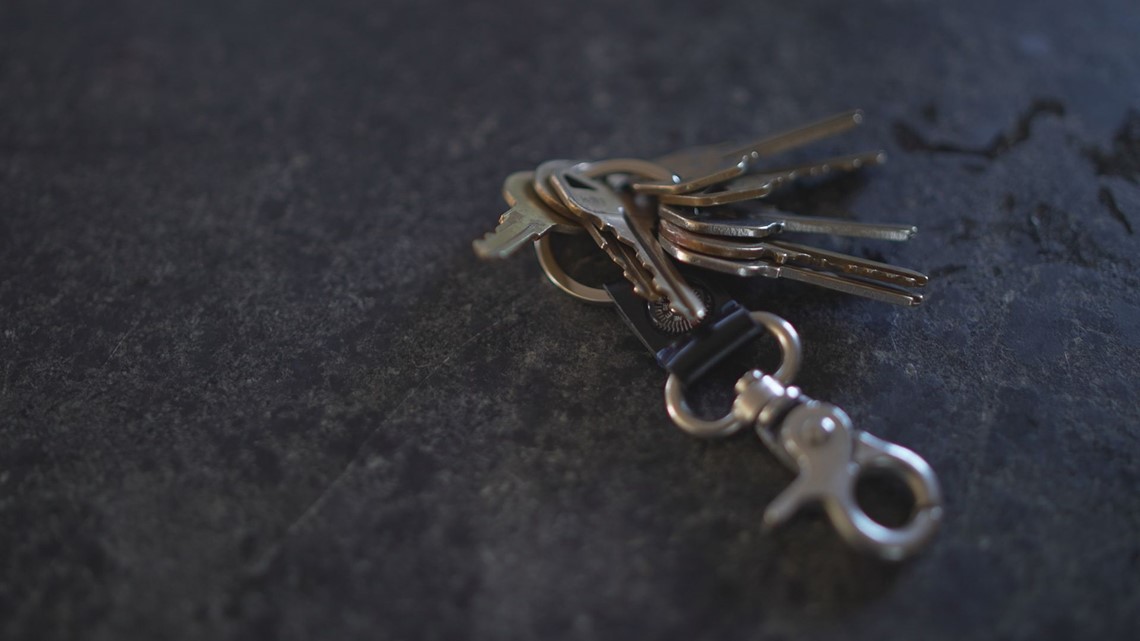
Since leaving Venezuela, they finally have a place to call home, even if it's still only temporary.
I said, 'I don’t know if this is God acting but honestly,' I’m really thankful for all the people who have supported and contributed. Really grateful, truthfully," Maria said.
"Entonces, yo decía, no se si es dios actuando, pero de verdad estoy agradecida de todas las personas que me han apoyado y aportaron. Muy agradecida de verdad", dijo Maria.
Maria still isn’t sure what will happen when the house is torn down, but her husband and brother-in-law are working to save money for a future home or apartment they can call their own – permanently.
See more of Angeline McCall's coverage of migrants and their families arriving to the U.S.:
SUGGESTED VIDEOS: Feature stories

